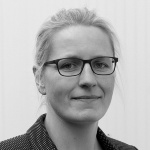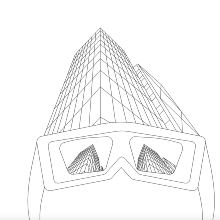Funding Phase II
Through the lens of architecture, A03 reflects on the research of SFB 1244, investigates adaptive architecture’s societal, cultural, and aesthetic dimensions, and projects it into social contexts. Thus, the project assumes an important critical as well as creative function: not only by discussing the technological developments in the context of the built environment and its living beings, but also by imagining and evolving them for the future. At the same time and in reaction to the technological developments, A03 aims at updating and re-defining architectural conceptions and roles: of buildings, architects, and inhabitants.
On the concept of Environments, which goes back to art and architectural tendencies of the 1960s, A03 examines adaptivity in architecture as a continuity and interdependence of spatial, technological, social, and cultural dimensions. Across disciplinary boundaries, Environments thus serve to define the novel material and symbolic relationships in which adaptation is conceived holistically, that is, technologically, socially, and aesthetically. In this research, different perspectives and actors are taken into account in order to answer central questions about communication, interaction and design. The main objective is to investigate socially relevant aspects of an open adaptation process. This leads to three scientific research questions:
- How do adaptive spaces affect inhabitants concerning place, time, use and perception?
- What important consequences can be derived for the design of adaptive structures?
- How can adaptation be described as a cultural technique?
To answer these questions, A03 carries out practical analyses of the demonstrator high-rise and creates adaptation scenarios with the aim of giving and receiving new impulses for further developments in SFB 1244. The project investigates adaptivity’s potential for architecture and its inhabitants and consequently establishes an adaptive design approach. This will have a significant impact on the development of design procedures (A02) and planning processes (A01).
The conceptual work in A03 completes the developments of adaptive structures by focusing on architectural, socio-cultural, and design dimensions. It contributes to a transdisciplinary research of SFB 1244
Subproject Leader
- Prof. Dr.-Ing. Mona Mahall, Professorin für Architektur und Kunst, Studiengang Architektur
- Prof. Dr.-Ing. Asli Serbest, Professorin für Temporäre Bauten, Fachbereich Kunst und Design
Funding Phase I
The architectural building as an enclosed unit should be replaced by the concept of architectural environment. It is imperative to revise a typological approach in architecture and develop a new hypothesis for the design. The architectural environment is more than a functional space and an aesthetic situation in real time. It implies users, who interact and participate through active adaptive control operations as well as passive behaviors. The architectural environment responds to users who, conversely, can perceive the environment as a "catalyst of action".
In the complex relationship between users and environment also changing in the aesthetic perceptions and spatial qualities are reflected. It is a discussion that to what extent the architectural environment only through the involvement of users as functional or actionable appears. By Investigating the proceeding of architectural designs, project A03 acts as an intermediary in the CRC.
Subproject Leader
- Prof. Dr.-Ing. Mona Mahall, Professor of Architecture and Art, Field of Study of Architecture
- Prof. Dr.-Ing. Asli Serbest, Professor of Temporary Buildings, Department of Art and Design
Contact

Hisham El-Hitami
M.Sc.Doctoral Researcher

Marie Ulber
Ph.D.Postdoctoral Researcher


